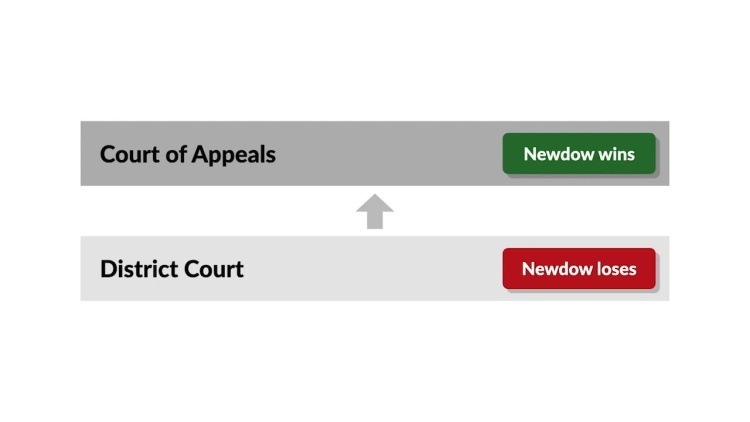Elk Grove Unified School District v. Newdow
United States Supreme Court
542 U.S. 1 (2004)
- Written by Megan Petersen, JD
Facts
The daughter of Michael Newdow (plaintiff) attended a public school in the Elk Grove Unified School District in California (defendant). Each day, teachers at the school led the students in a voluntary recitation of the Pledge of Allegiance, which included the words “under God.” Michael Newdow, an atheist, brought suit in federal district court in California arguing that Elk Grove’s act of making the students listen—even if they chose not to participate—to the words “under God” each day violated the Establishment Clause of the First Amendment of the Constitution. The case was referred to a magistrate judge, who concluded that “the Pledge does not not violate the Establishment Clause.” The district court adopted that recommendation and dismissed the complaint. Newdow appealed, and Sandra Banning, his daughter’s mother, filed a motion to have her daughter dismissed as a party to the lawsuit on the grounds that (1) a state-court order granted her "exclusive legal custody" of her daughter and (2) her daughter did not personally object to saying the Pledge of Allegiance. The United States Court of Appeals for the Ninth Circuit considered Newdow’s case in light of Banning’s motion and reversed, holding that the grant of sole legal custody to Banning did not deprive Newdow of his standing to challenge the school’s policy and that, under California law, Newdow had the right to expose his child to his particular religious views, even if those views contradicted the mother's. The court of appeals also held that the school’s policy, as well as the 1954 congressional act that first added the words “under God” to the Pledge of Allegiance, both violated the First Amendment’s Establishment Clause. The United States Supreme Court granted certiorari to review the standing and First Amendment issues.
Rule of Law
Issue
Holding and Reasoning (Stevens, J.)
Concurrence (O’Connor, J.)
Concurrence (Rehnquist, C.J.)
Concurrence (Thomas, J.)
What to do next…
Here's why 907,000 law students have relied on our case briefs:
- Written by law professors and practitioners, not other law students. 47,100 briefs, keyed to 996 casebooks. Top-notch customer support.
- The right amount of information, includes the facts, issues, rule of law, holding and reasoning, and any concurrences and dissents.
- Access in your classes, works on your mobile and tablet. Massive library of related video lessons and high quality multiple-choice questions.
- Easy to use, uniform format for every case brief. Written in plain English, not in legalese. Our briefs summarize and simplify; they don’t just repeat the court’s language.





